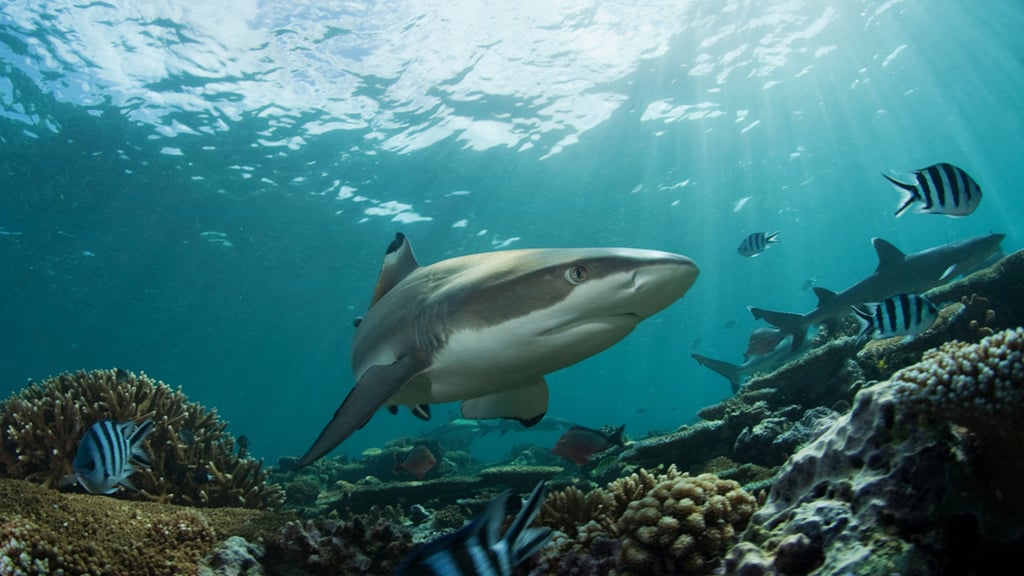Shark Week, Discovery’s annual celebration of teeth, fins, and scary background music, is back.
Shark Week is one of the biggest events in the popular science world, but is it an accurate representation of these beasts of the sea? What are the odds you’re going to get bitten this summer? If a shark attacks, what do you do? (Pro tip: Punching it in the nose doesn’t actually work.)
Should I be worried about shark bites?
Not really. The odds that you’ll die because of a shark bite are about one in 3.7 million, according to the International Shark Attack File. In fact, you’re way more likely to die from a lightning strike, which kills about one in 80,000. There’s a one in 11.5 million chance you’ll get attacked by a shark based on data published in 2000. You’re even far more likely to die of the flu—a one-in-63 chance—than of a shark.
Yeah, but let’s say the impossible happens. What should I do if I’m bitten by a shark?
Okay, if a shark does get you, there are ways to get out of a toothy situation. First, forget anything you’ve heard about punching it in the nose. Punching something underwater isn’t going to be very effective. Instead, poke the shark in the eyes—hard. “Sharks have a protective eyelid-like barrier called a nictitating membrane, but it’s designed to protect from a thrashing fish caught in that shark’s jaws and not from fingers,” according to Smithsonian Magazine.
Why do sharks go after people in the first place?
Sharks rarely bite people, and when they do it’s not usually fatal. If sharks attack humans it’s most likely because they’re confusing people for their natural prey. That’s why most sharks will bite and then, realizing you’re not a seal, let go and swim away. Another reason is that sharks are naturally curious animals. If you’re swimming with shiny jewelry and brightly colored clothing—or with an open wound—a shark might come investigate, according to National Geographic.
How can I reduce my risk of a shark bite?
If you’re still worried (you shouldn’t be), you can further reduce your risk of shark attack by following these rules suggested by the Florida Museum of Natural History. Don’t swim by yourself or stray too far from the shore. Stay out of the water at dawn, twilight and at night when sharks are most active. This one should be a no-brainer, but avoid water that’s contaminated with sewage because that lures in fish that provide a food source for sharks. Being aware of your surroundings in this way will reduce your already improbably low risk being attacked by a shark.


















